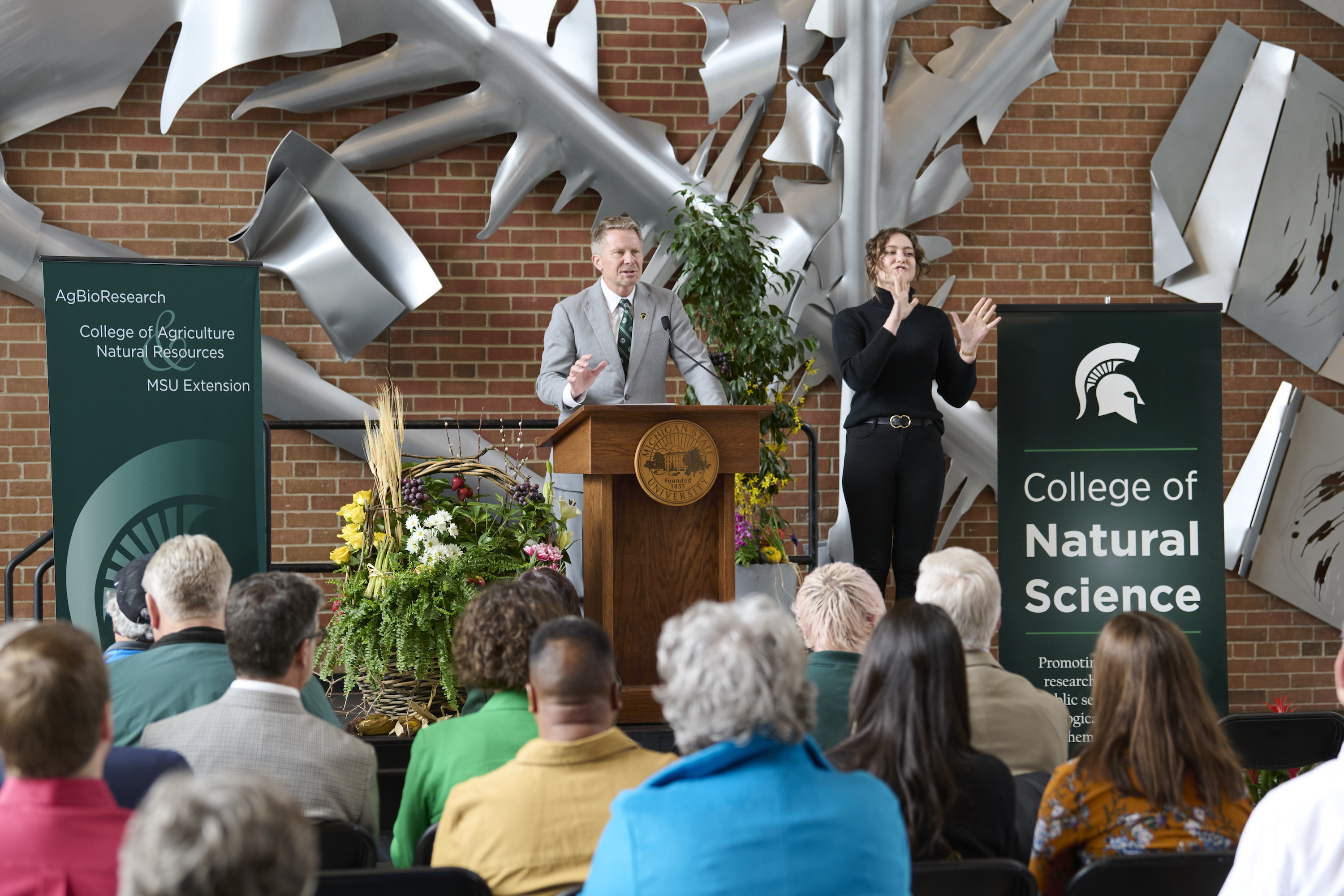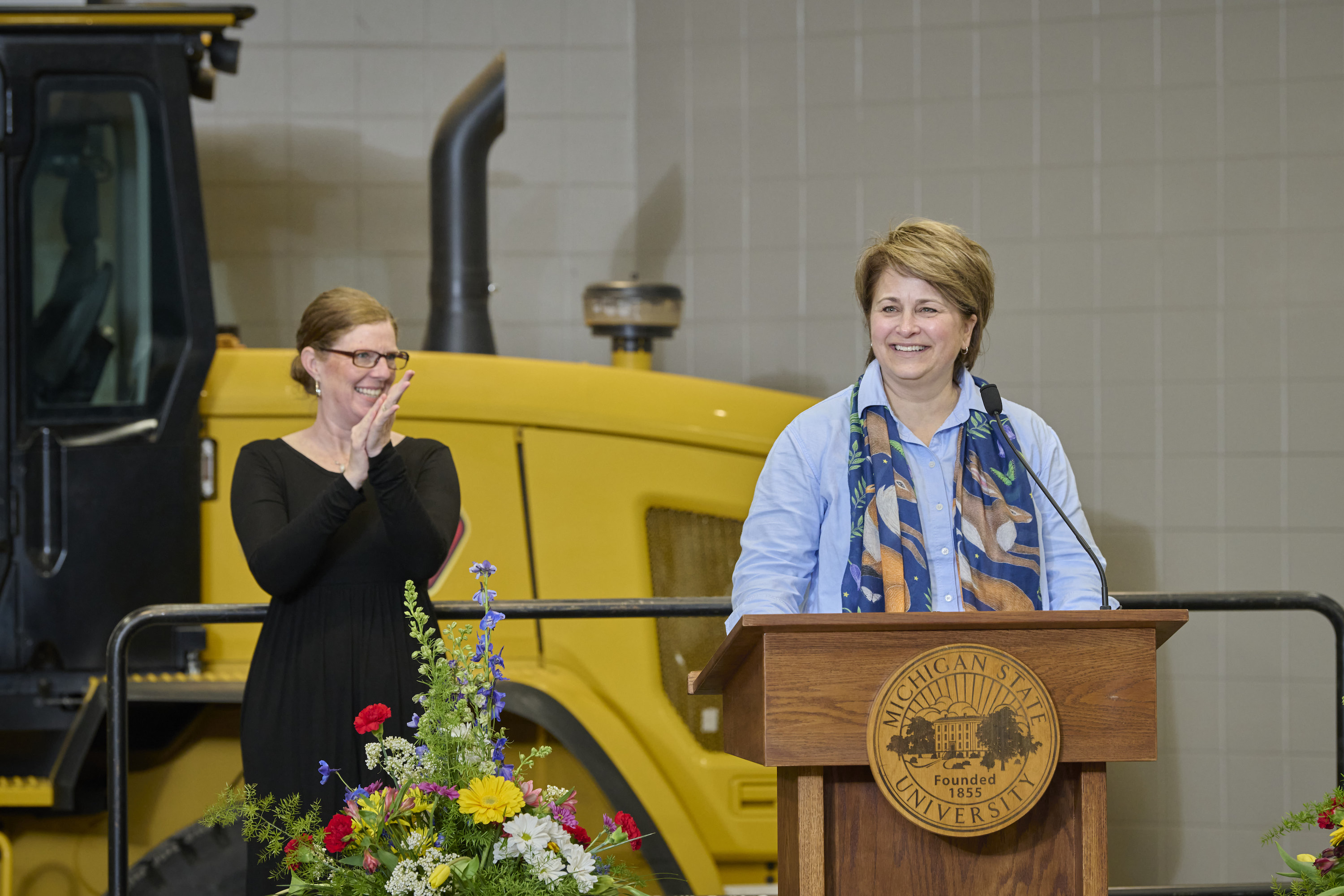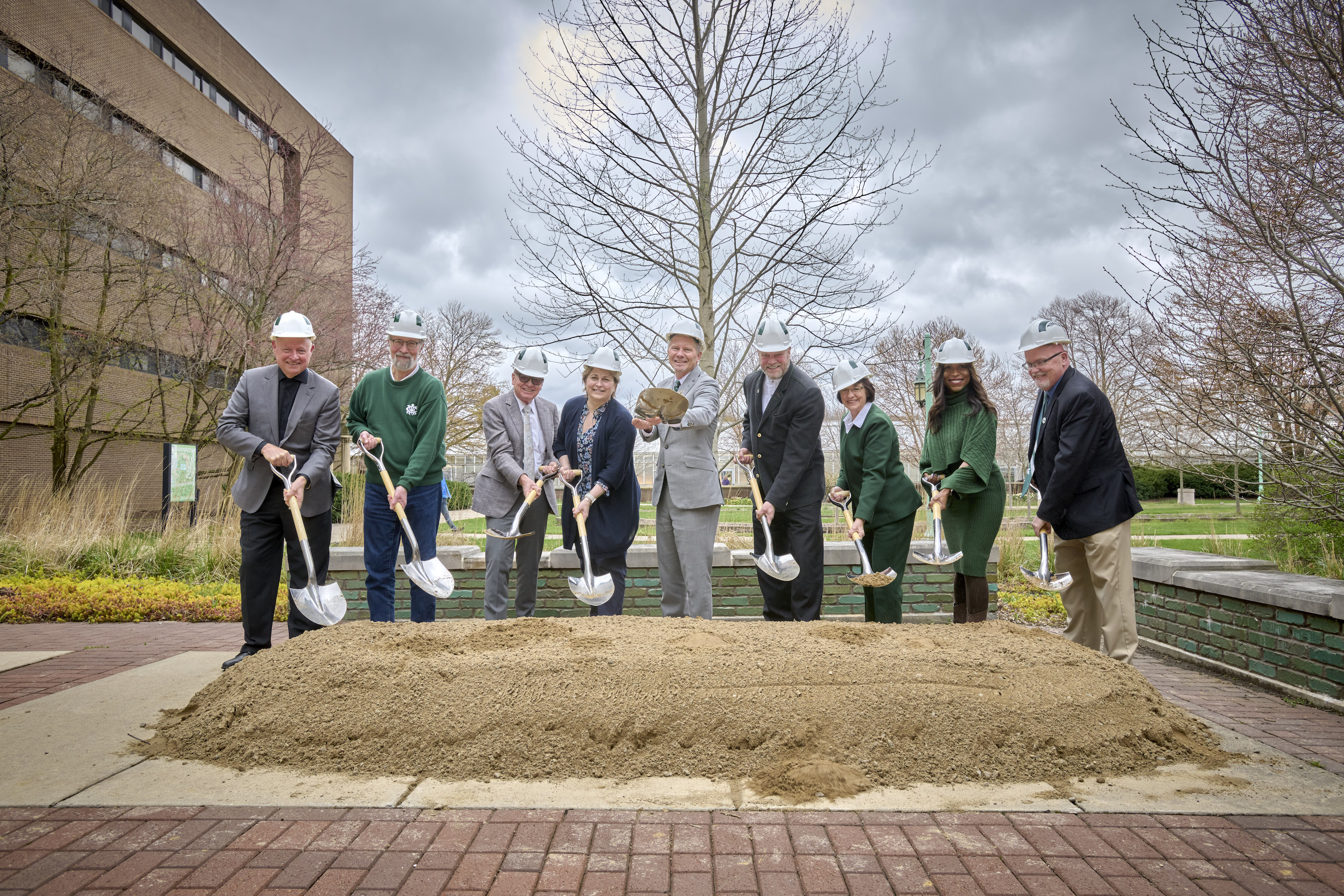MSU broke ground on two new infrastructure projects that are critical to the future of Michigan food production and agriculture. Construction began on an updated, state-of-the-art Dairy Cattle Teaching and Research Center, as well as substantial renovations and additions to the Plant Science Greenhouses.
The new and renovated spaces will expand research capacity for MSU scientists in the colleges of Agriculture and Natural Resources, Natural Science and Veterinary Medicine, including research funded by MSU AgBioResearch.
The State of Michigan provided $53 million for partial funding of each project. Both projects received strong bipartisan support from Michigan’s agricultural community.

MSU and community leaders attended the Dairy Cattle Teaching and Research Center groundbreaking on Thursday, April 11, and the greenhouse groundbreaking on Friday, April 12.
“Not only do these two facilities play a vital role in supporting our agricultural partners with cutting-edge knowledge, but they are crucial assets to develop the next generation of dairy industry and plant science leaders,” said MSU President Kevin M. Guskiewicz. “These much-needed facility enhancements will serve MSU students, scientists and stakeholders well into the future, and we are grateful to the Legislature and governor for their support.”
“These two projects are a testament to the power of collaboration, uniting stakeholders across multiple sectors to advance sustainability in plant science best practices and high-quality dairy production,” said MSU Chair Dan Kelly. “These projects support our world-class scientists and students and empower them to work alongside the agricultural community, driving innovations that promote productivity and sustainability.”
New Dairy Cattle Teaching and Research Center
The existing MSU Dairy Cattle Teaching and Research Center currently houses 250 dairy cattle and supports the research of faculty in the colleges of Agriculture and Natural Resources and Veterinary Medicine. The new dairy facility will expand research capacity by increasing herd size to 680 in addition to creating modernized barns, feed centers, milking parlors and laboratories. The new facility also will provide spaces for student instruction. The project is budgeted at $75 million.

“This new dairy facility will stand as a testament to the power of partnerships,” said Kelly Millenbah, dean of the College of Agriculture and Natural Resources. “These spaces for research, education and outreach will serve Michigan’s farmers and develop tomorrow’s workforce, and we’re so grateful for this investment in the future of agriculture at Michigan State.”
The College of Veterinary Medicine also will benefit from the new research center.
“The dairy industry has advanced well beyond the center’s current capacity, particularly in regard to research potential and teaching modern production practices,” said Doug Freeman, interim dean of the College of Veterinary Medicine. “As we train the next generation of veterinarians, the center will allow them to develop significantly enhanced skills in dairy production medicine, which will enable them to serve clients and better protect local and global food systems.”
Plant Science Greenhouses
MSU’s Plant Science Greenhouses are a research and teaching hub for 70 faculty and 600 students in the colleges of Agriculture and Natural Resources and Natural Science. The renovations and additions have a project budget of $35 million and will include state-of-the-art environmental controls and energy-efficient LED lighting configured to external climate conditions. The project also includes a new headhouse, which will provide administrative and research space.

“MSU is a world-leading center for plant sciences research that drives innovation in the agricultural economy and addresses the impacts of a changing climate and emerging diseases, pests and contaminants,” said Phillip Duxbury, dean of the College of Natural Science. “Well-controlled greenhouse environments are essential to maintaining MSU’s leadership in these areas and we are very grateful to Michigan’s political leaders, the board and MSU leadership for supporting these high-impact upgrades.”